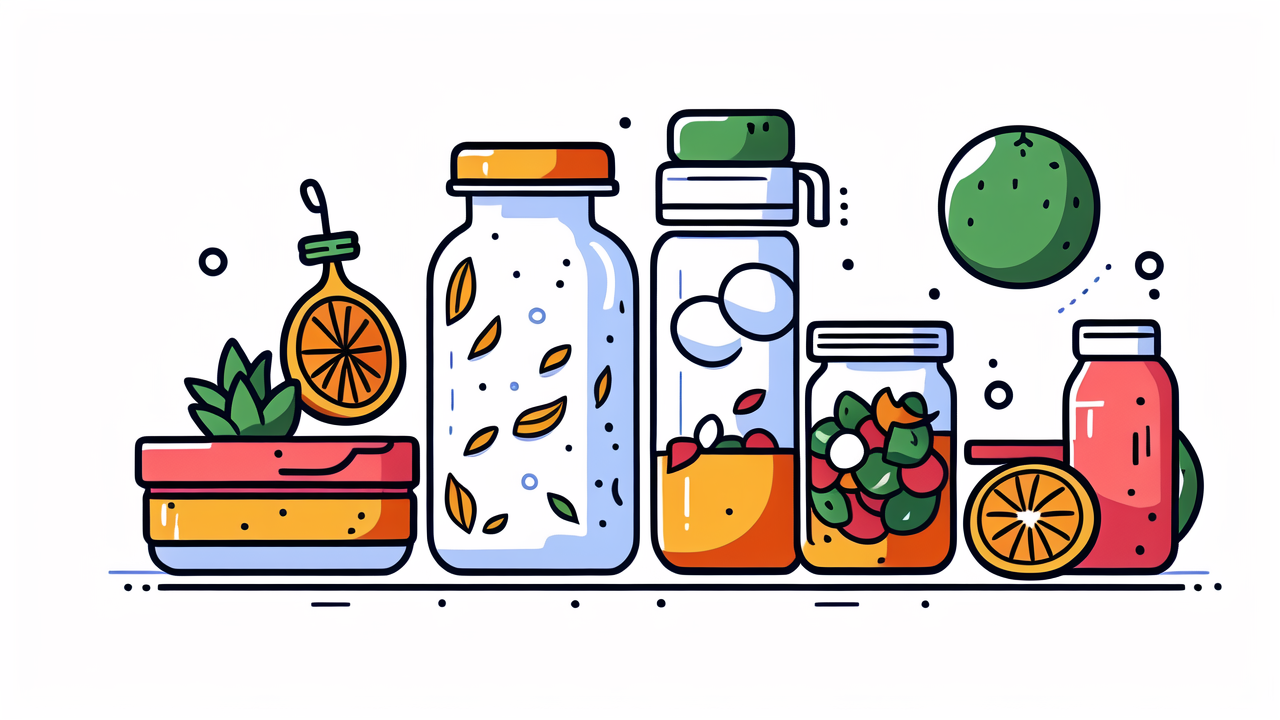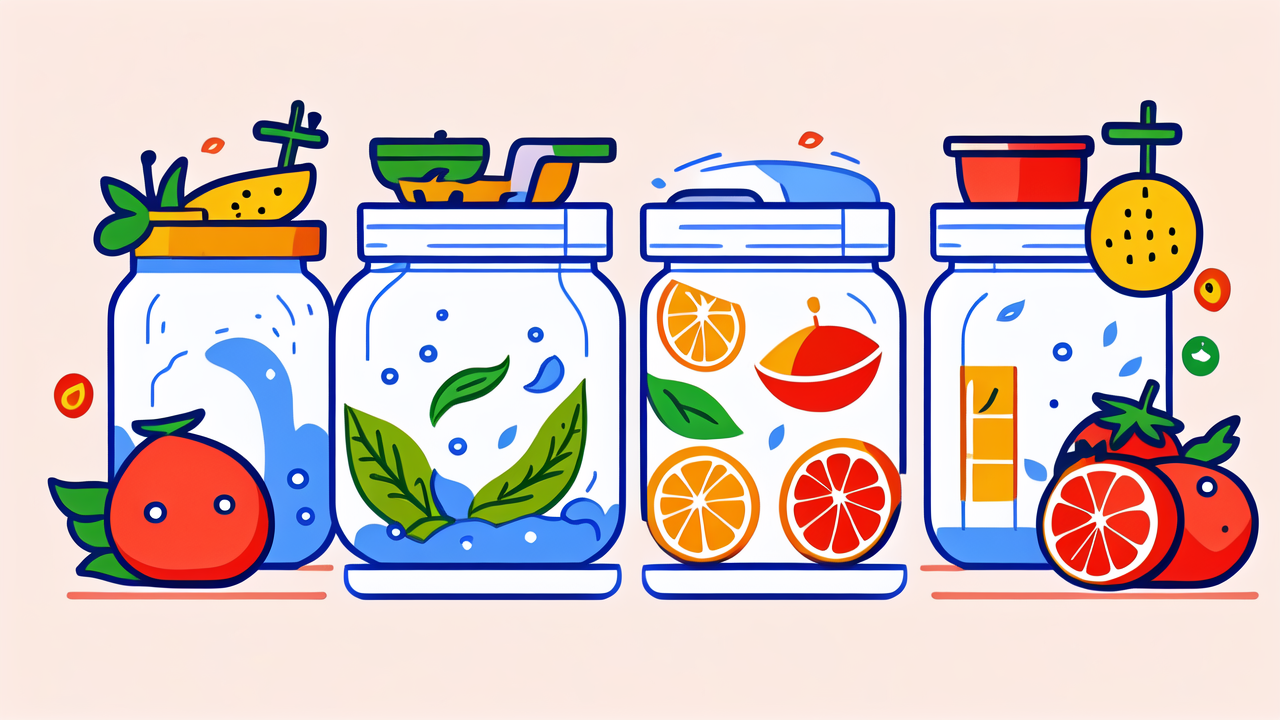From Farm to Table: Master the Technique of Storing Fruit in Mason Jars for Year-Round Freshness
Why Storing Fruit in Mason Jars Is a Game-Changer for Gardeners and Lifestylists
Understanding the Basics of Fruit Preservation
Fruit preservation is an ancient practice that has evolved over time. It allows us to enjoy seasonal fruits all year round. The key to successful preservation is controlling moisture and preventing spoilage. Mason jars are ideal for this purpose. They create an airtight seal that keeps fruit fresh for longer periods. This method is simple, cost-effective, and environmentally friendly. It's a great way to reduce food waste and save money on groceries. Plus, it's a fun activity that can involve the whole family. Learning this skill can open up new possibilities in your kitchen and garden.

The Benefits of Using Mason Jars for Fruit Storage
Mason jars offer numerous advantages for fruit storage. They are durable, reusable, and easy to clean. These jars come in various sizes, making them suitable for different fruit quantities. The glass material allows you to see the contents clearly. This helps in identifying and organizing your preserved fruits. Mason jars are also BPA-free, ensuring your fruits stay chemical-free. They take up less space compared to other storage methods, making them ideal for small kitchens. Using Mason jars reduces plastic waste, contributing to a more sustainable lifestyle. They also add a rustic charm to your pantry or kitchen decor.
Step-by-Step Guide to Storing Fruit in Mason Jars
Selecting the Best Fruit for Preservation
Choosing the right fruits is crucial for successful preservation. Here are some tips:

- Pick ripe, but not overripe fruits
- Avoid fruits with bruises or blemishes
- Choose fruits that are in season for the best flavor
- Consider fruits that preserve well, like berries, peaches, and pears
- Wash fruits thoroughly before preservation
- Remove any stems, pits, or seeds
Remember, the quality of your preserved fruit depends on the quality of fresh fruit you start with. Take time to select the best fruits for optimal results. This will ensure your preserved fruits taste great even months later.
Preparing the Fruit: Step-by-Step Instructions
- Clean your Mason jars and lids with hot, soapy water. Rinse well.
- Sterilize jars by boiling them for 10 minutes. Keep lids in hot water until use.
- Prepare a syrup solution: mix sugar and water in a 1:4 ratio. Heat until sugar dissolves.
- Cut fruits into desired sizes. Remove any blemishes or bruised parts.
- Pack fruits tightly into jars, leaving 1/2 inch headspace at the top.
- Pour hot syrup over fruits, ensuring they're fully covered.
- Remove air bubbles by running a knife along the jar's inside edge.
- Wipe jar rims clean with a damp cloth to ensure a good seal.
- Place lids on jars and screw on bands until fingertip tight.
Follow these steps carefully for best results. This process helps preserve fruit flavor and texture.
Sealing and Labeling for Long-Term Storage
Proper sealing is crucial for long-term fruit storage. Here's how to do it:
- Place filled jars in a large pot of boiling water.
- Ensure jars are covered by at least 1 inch of water.
- Process jars in boiling water for the recommended time (varies by fruit type).
- Remove jars carefully and let them cool on a towel for 24 hours.
- Check seals by pressing on the center of the lids. They shouldn't flex.
- Label jars with fruit type and date of preservation.
- Store in a cool, dark place for up to a year.
Proper labeling helps you track your preserved fruits. It ensures you use them within their best quality period. Remember to always check for signs of spoilage before consuming preserved fruits.
Advancing Your Gardening Skills with Mason Jar Storage Techniques
Innovations in Fruit Storage: Why Mason Jars Are Leading the Way
Mason jars are at the forefront of fruit storage innovation. They offer versatility that other methods can't match. New lid designs have improved sealing capabilities. This extends the shelf life of preserved fruits even further. Some innovative uses of Mason jars include:

- Vacuum sealing for extra freshness
- Fermentation of fruits for probiotic benefits
- Creating fruit-infused vinegars and oils
- Layered fruit desserts for gift-giving
These innovations make Mason jars a favorite among gardeners and food enthusiasts. They allow for creative preservation methods beyond traditional canning. As sustainability becomes more important, Mason jars offer an eco-friendly storage solution. They reduce the need for single-use plastics in fruit storage. This aligns with the growing trend of zero-waste lifestyles.
How to Troubleshoot Common Fruit Storage Issues
Even with careful preparation, issues can arise. Here are some common problems and solutions:
- Fruit floating in jar:
- Pack fruit more tightly next time
- Use a lighter syrup
- Discoloration of fruit:
- Use a fruit preserver like lemon juice
- Process jars immediately after filling
- Jars not sealing properly:
- Check for nicks in jar rims
- Ensure proper headspace
- Tighten bands correctly
- Mold growth:
- Discard the jar contents
- Review sterilization process
- Cloudy liquid:
- May be due to minerals in water, usually harmless
- Use distilled water if concerned
Remember, when in doubt, it's better to discard questionable jars. Food safety should always be your top priority.
Sharing Your Mason Jar Fruit Storage Hacks Online
In today's digital age, sharing your fruit storage experiences can be rewarding. Here's how:
- Start a blog or vlog about your fruit preservation journey
- Share before-and-after photos on Instagram or Pinterest
- Join online gardening communities to exchange tips
- Create step-by-step tutorials for beginners
- Participate in canning challenges or events online
Sharing your knowledge helps others learn this valuable skill. It also connects you with like-minded individuals. You might discover new techniques or recipes through these interactions. Remember to always credit your sources when sharing information. Engage with your audience by answering questions and providing support. Your experiences could inspire others to start their own fruit preservation journey.




